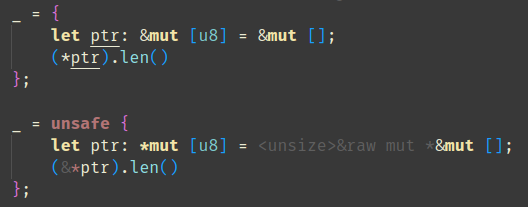feat: add the ability to limit the number of threads launched by `main_loop`
## Motivation
`main_loop` defaults to launch as many threads as cpus in one machine. When developing on multi-core remote servers on multiple projects, this will lead to thousands of idle threads being created. This is very annoying when one wants check whether his program under developing is running correctly via `htop`.
<img width="756" alt="image" src="https://user-images.githubusercontent.com/41831480/206656419-fa3f0dd2-e554-4f36-be1b-29d54739930c.png">
## Contribution
This patch introduce the configuration option `rust-analyzer.numThreads` to set the desired thread number used by the main thread pool.
This should have no effects on the performance as not all threads are actually used.
<img width="1325" alt="image" src="https://user-images.githubusercontent.com/41831480/206656834-fe625c4c-b993-4771-8a82-7427c297fd41.png">
## Demonstration
The following is a snippet of `lunarvim` configuration using my own build.
```lua
vim.list_extend(lvim.lsp.automatic_configuration.skipped_servers, { "rust_analyzer" })
require("lvim.lsp.manager").setup("rust_analyzer", {
cmd = { "env", "RA_LOG=debug", "RA_LOG_FILE=/tmp/ra-test.log",
"/home/jlhu/Projects/rust-analyzer/target/debug/rust-analyzer",
},
init_options = {
numThreads = 4,
},
settings = {
cachePriming = {
numThreads = 8,
},
},
})
```
## Limitations
The `numThreads` can only be modified via `initializationOptions` in early initialisation because everything has to wait until the thread pool starts including the dynamic settings modification support.
The `numThreads` also does not reflect the end results of how many threads is actually created, because I have not yet tracked down everything that spawns threads.
feat: Add an option to hide adjustment hints outside of `unsafe` blocks and functions
As the title suggests: this PR adds an option (namely `rust-analyzer.inlayHints.expressionAdjustmentHints.hideOutsideUnsafe`) that allows to hide adjustment hints outside of `unsafe` blocks and functions:

Requested by `@BoxyUwU` <3
feat: add config for inserting must_use in `generate_enum_as_method`
Should fix#13312
Didn't add a test because I was not sure on how to add test for a specific configuration option, tried to look for the usages for other `AssistConfig` variants but couldn't find any in `tests`. If there is a way to test this, do point me towards it.
I tried to extract the formatting string as a common `template_string` and only have if-else for that, but it didn't compile :(
Also it seems these tests are failing:
```
test config::tests::generate_config_documentation ... FAILED
test config::tests::generate_package_json_config ... FAILED
```
Can you also point me to how to correct these 😅 ( I guess there is some command to automatically generate these? )
Add a new configuration settings to set env vars when running cargo, rustc, etc. commands: cargo.extraEnv and checkOnSave.extraEnv
It can be extremely useful to be able to set environment variables when rust-analyzer is running various cargo or rustc commands (such as `cargo check`, `cargo --print cfg` or `cargo metadata`): users may want to set custom `RUSTFLAGS`, change `PATH` to use a custom toolchain or set a different `CARGO_HOME`.
There is the existing `server.extraEnv` setting that allows env vars to be set when the rust-analyzer server is launched, but using this as the recommended mechanism to also configure cargo/rust has some drawbacks:
- It convolutes configuring the rust-analyzer server with configuring cargo/rustc (one may want to change the `PATH` for cargo/rustc without affecting the rust-analyzer server).
- The name `server.extraEnv` doesn't indicate that cargo/rustc will be affected but renaming it to `cargo.extraEnv` doesn't indicate that the rust-analyzer server would be affected.
- To make the setting useful, it needs to be dynamically reloaded without requiring that the entire extension is reloaded. It might be possible to do this, but it would require the client communicating to the server what the overwritten env vars were at first launch, which isn't easy to do.
This change adds two new configuration settings: `cargo.extraEnv` and `checkOnSave.extraEnv` that can be used to change the environment for the rust-analyzer server after launch (thus affecting any process that rust-analyzer invokes) and the `cargo check` command respectively. `cargo.extraEnv` supports dynamic changes by keeping track of the pre-change values of environment variables, thus it can undo changes made previously before applying the new configuration (and then requesting a workspace reload).
Allow configuration of annotation location.
I've added the ability to configure where lens annotations render relevant to the item they describe. Previously, these would render directly above the line the item is declared on. Now, there is the ability to render these annotations above the entire item (including doc comments, and attributes).
The names of the config options are up for debate, I did what seemed best to me but if anyone has better ideas let me know.
This is my first contribution so if I've missed anything please let me know.
Here's a preview of what the new option looks like:
<img width="577" alt="Screen Shot 2022-09-11 at 10 39 51 PM" src="https://user-images.githubusercontent.com/33100798/189570298-b4fcbf9c-ee49-4b79-aae6-1037ae4f26af.png">
closes https://github.com/rust-lang/rust-analyzer/issues/13218
Previously, annotations would only appear above the name of an item (function signature, struct declaration, etc).
Now, rust-analyzer can be configured to show annotations either above the name or above the whole item (including doc comments and attributes).